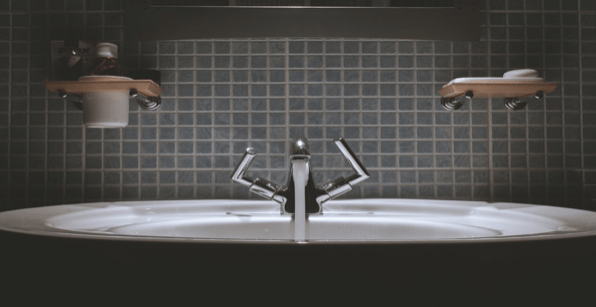Plumbing involves the use of pipes, tanks, valves, plumbing fixtures and other devices to carry fluids. Although waste removal, heating and cooling, and potable water delivery are related to plumbing, it comprises other applications as well.
Plumbing and heating are related to other sections of the construction industry, including the various supporting products, usually used for commercial intent. The current plumber is trained to work on both dry and wet pipes with heating systems included. Other workers in this field include pipefitters and boilers who work on piping, but their jobs include some aspects of plumbing.
History of Plumbing
During the Roman era, lead was the preferred material used for water pipes. Due to its pliability, it could be molded into the desired shape hence the word plumber. This is where the word plumbing originated, a derivation from the Latin “Plumbum,” which means lead. In later years, there was a development in health concerns, which were related to the use of lead pipes. The result was a high rate of stillbirths and infant mortality all attributed to the lead in these pipes, which found its way into the water supply.
However, in the early 20th century, lead pipes were still being used in many homes. The introduction of copper piping created a more improved and safer substitute to lead pipes. Furthermore, copper pipes were connected by tin alloy solder but in a modernized plumbing practice, tin-antimony alloy solder is used instead to get rid of lead hazards. In the industrialized world, plumbing substructure is vital to sanitation and public health and the growing awareness of lead poisoning has resulted in the use of other materials for pipes.
Materials used in Plumbing
In ancient times, pipes and channels used to transport water were made from materials such as lead, clay, wood, stone or bamboo. In modern times, the majority of pipes used in plumbing are made from steel, copper, and plastic.
- Galvanized steel: These are not frequently used for residential and new construction plumbing.
- Copper pipe and tubing: This was used extensively for domestic water systems in the last half of the 20th century.
- Plastic pipe: Presently used widely for domestic water supply system and drain-waste-vent (DWV) pipe.
Is there a difference between heating and plumbing?
A plumber’s job is to repair and connect of plumbing systems that carry water, gas, steam, air and sewage. Their job also include clearing of clogged drains, repairing sinks, toilets and other by fittings. It is the plumbers’ responsibility to work in accordance with national plumbing regulations.
There are colleges and schools that offer plumbing courses so that interested persons can earn a diploma or degree in this field. Once the course of study is completed, plumbers will have to gain the experience before they can apply for license to work within their locality. Qualified plumbers are trained to work on heating systems and install them as well. Highly trained plumbers are Gas Safe Registered. Checking the Gas Safe Register will help you to identify these.
Heating Engineers work solely on heating systems. They install and maintain pipes and fixtures that are critical to heating a building. Heating engineers work in residential, industrial and commercial properties to deliver heating solutions for the needs of consumers. Heating engineers are specialist in their field and qualified to work on boiler repair and service. Read https://en.wikipedia.org/wiki/Plumbing
Plumbing and Heating Technicians
Plumbing and heating is a part of the construction industry. The persons who in heating and plumbing are called technicians. The job of the plumbing and heating technicians include working on residential, commercial, agricultural as well as industrial projects of different size, ranging from a solo home to big and complex company projects.
Technicians can plan and design, install, test, commission, report, troubleshoot, repair and maintain systems to the required standards. They have to work to provide reliable and safe service that meets relevant standards, detecting breakdowns, or programming and authorizing home and commercial computerization systems. Consequently, these specialists will need to develop communication skills and habits in accuracy, concentration, precision, flexibility and paying attention to details.
Since these technician works on commercial, agricultural, industrial and residential projects, a direct relationship exists between the quality and the nature of the required product and the cost to the consumer. Therefore, it is the practitioner’s responsibility to work professionally always to satisfy the needs of the customer and to avoid potentially costly, life threatening situations. Click here for more information on plumbing.
Conclusion
With the global movement of people, plumbing and heating technicians will encounter a multiple of increasing opportunities and challenges. The talented practitioner will have countless opportunities both commercially and internationally. These opportunities will require an understanding of the diverse needs, cultures and current trends to help them face the challenges. These existing, rising opportunities will provide the way forward for the wide diversity of skills and expertise needed by skilled technicians to work efficiently in the plumbing and heating niche.
The Editorial Team at Healthcare Business Today is made up of skilled healthcare writers and experts, led by our managing editor, Daniel Casciato, who has over 25 years of experience in healthcare writing. Since 1998, we have produced compelling and informative content for numerous publications, establishing ourselves as a trusted resource for health and wellness information. We offer readers access to fresh health, medicine, science, and technology developments and the latest in patient news, emphasizing how these developments affect our lives.










1 thought on “Get the Facts about Plumbers in Northampton”
Comments are closed.